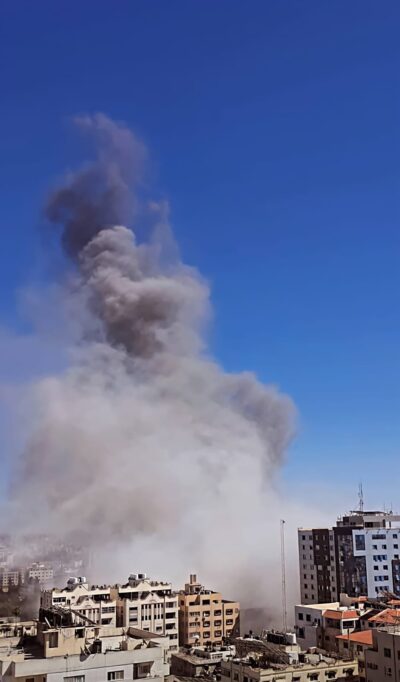Israeli forces have intensified their bombardment of the besieged Gaza Strip, killing at least 78 Palestinians on Monday alone, including several who were reportedly seeking aid, as ceasefire negotiations continue to falter. The escalation comes amid worsening shortages of food, fuel, and clean water across the enclave, plunging Gaza deeper into an unprecedented humanitarian catastrophe.
According to the official Palestinian news agency Wafa, an Israeli strike near an aid distribution site in Rafah, southern Gaza, claimed the lives of at least five civilians attempting to access assistance. These deaths bring the number of Palestinians killed near facilities operated by the controversial Israeli and US-backed Gaza Humanitarian Foundation (GHF) to 838, Wafa reported.
In another deadly incident, an airstrike on a displacement camp in Khan Younis, also in the south, killed nine people and injured many more. Further north, four Palestinians were killed in central Gaza’s Bureij refugee camp when a commercial center was struck by an Israeli air raid, according to the same source.
Israeli military operations have also intensified in northern Gaza and Gaza City. Local media reported an ambush in Gaza City involving a tank that came under rocket fire and small-arms attack. A helicopter was later seen evacuating the wounded, and the Israeli army confirmed that three of its soldiers were killed in the incident.
Al Jazeera correspondent Tareq Abu Azzoum, reporting from Deir el-Balah, described “massive air strikes” targeting the Tuffah and Shujayea neighborhoods, resulting in widespread destruction of residential buildings. Wafa stated that at least 24 Palestinians were killed in Gaza City on Monday, with dozens more injured.
The renewed violence comes as United Nations agencies continue to warn of imminent famine and the collapse of Gaza’s healthcare infrastructure. A crippling fuel shortage has paralyzed critical services, including desalination plants, sewage systems, and water pumping stations. The situation has deteriorated sharply since Israel began blocking most fuel shipments into Gaza on March 2.
Despite an agreement reached last week between Israel and the European Union aimed at facilitating the flow of humanitarian aid, officials say no tangible improvements have been observed.
“Nothing has changed [on the ground],” Egypt’s Foreign Minister Badr Abdelatty said on Monday during remarks ahead of the EU-Middle East summit in Brussels.
The EU’s foreign policy chief announced on Thursday that the bloc had secured commitments from Israel to enhance humanitarian access, including increasing aid deliveries and opening additional border crossings. However, Israeli Foreign Minister Gideon Saar offered no specific details regarding implementation, only referencing a general understanding with the EU.
When asked if the agreement had yielded any improvement, Jordan’s Foreign Minister Ayman Safadi said the situation remains dire. “There is a real catastrophe happening in Gaza resulting from the continuation of the Israeli siege,” he stated.
Meanwhile, indirect ceasefire negotiations entered their second week on Monday, with talks taking place in Doha, Qatar. Mediators are attempting to bridge the wide gap between Hamas and Israel, particularly over the release of captives and a proposed 60-day cessation of hostilities.
A source familiar with the negotiations told AFP that discussions are now centered on Israeli troop deployment maps within Gaza. “Mediators are actively exploring innovative mechanisms to bridge the remaining gaps and maintain momentum in the negotiations,” the source said, speaking on condition of anonymity.
Hamas continues to hold Israeli Prime Minister Benjamin Netanyahu responsible for obstructing a ceasefire. The group stated via Telegram: “Netanyahu is skilled at sabotaging one round of negotiations after another, and is unwilling to reach any agreement.”
Domestically, Netanyahu is facing increasing pressure to end the war, as Israeli military casualties rise and public discontent grows. His administration is also under fire for a controversial proposal to construct a “humanitarian city” in Rafah to house 600,000 displaced Palestinians once a ceasefire is reached.
The plan, which involves building from the ground up in the heavily damaged southern region, has been condemned by critics, including Israel’s own security officials and the United Nations Relief and Works Agency for Palestine Refugees in the Near East (UNRWA), which likened it to the creation of a “concentration camp.”
As both the humanitarian crisis and military conflict deepen, hopes for a near-term resolution remain bleak, with little progress evident at the negotiating table.






